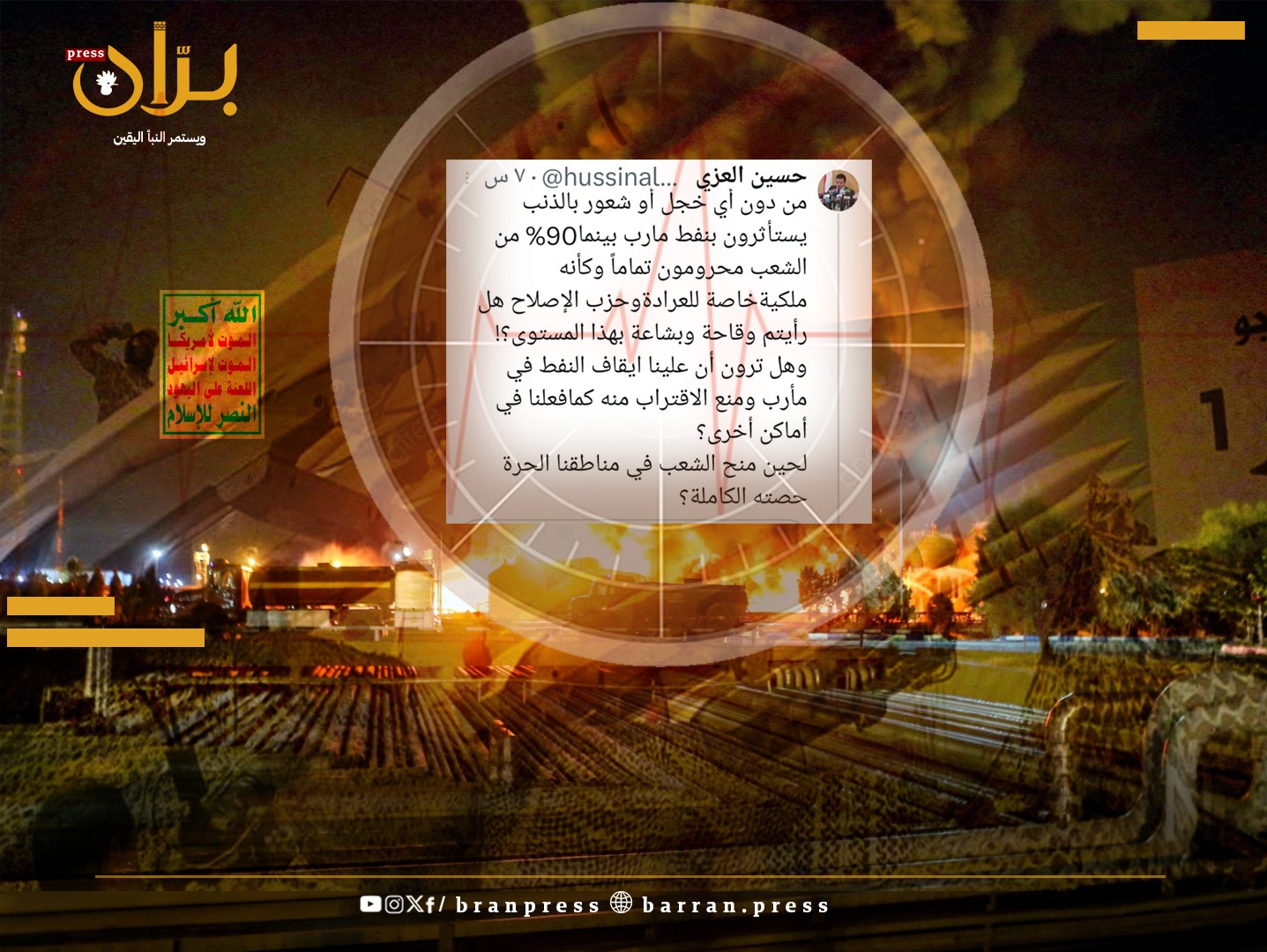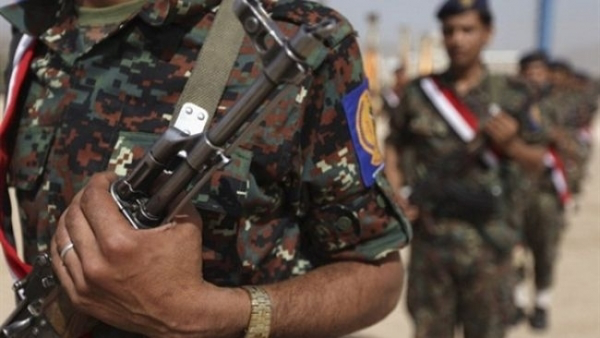
Barran Press
On Sunday, May 5th, 2024, a Houthi leader hinted at the possible disruption of oil extraction from the Safir fields in Yemen's Marib Governorate, echoing past actions in Shabwa and Hadramout. This announcement came just a day after the Houthi group declared the "fourth phase" of their escalation against Israeli vessels.
Hussein Al-Azzi, the Deputy Foreign Minister of the unrecognized Houthi government in Sanaa, made a post on the monitored platform "X," accusing the internationally recognized Yemeni government of treating oil as private property. Al-Azzi further alleged that oil in Marib was being seized by Major General Sultan Al-Aradah and the Islah Party. He questioned whether oil production in Marib should be halted, similar to other areas, until fair distribution was ensured.
These statements alluded to previous attacks on oil export ports in Hadramout and Shabwa, which disrupted government oil revenues and fuel supplies. In March of the last year, the Houthis expressed their willingness to allow the resumption of oil exports from government-controlled ports. Still, they demanded transparent mechanisms to ensure revenues were used for the public good.
Military expert Dr. Ali Al-Dhahab, in an interview with "Baran Press," downplayed the recent Houthi statements as not posing a serious threat. He dismissed the direct targeting of oil facilities in Marib, citing it as a violation of the ceasefire. However, Al-Dhahab acknowledged the possibility of sabotage acts or using the threat as leverage to demand a share of oil revenues.
Al-Azzi's remarks about Marib's oil supply come amidst tensions over the governor of Hadramout's refusal to supply oil to Aden for electricity generation. Marib has been the primary supplier of oil to Aden for years. Dr. Al-Dhahab suggested that these statements aimed to exacerbate divisions among factions loyal to the internationally recognized Yemeni government, particularly regarding revenue-sharing.
Regarding the recent Houthi escalation against Israeli ships, Al-Dhahab stated that it was not linked to any internal escalation in the Red Sea. He highlighted the group's commitment to the ceasefire. He suggested that violence would resume only if the international parties perceived the Houthis as a genuine threat to regional peace and their interests.
The military expert also emphasized the connection between Houthi escalation and peace negotiations in Yemen. He claimed that if the Houthis' conditions, such as sharing oil and fully opening airports and ports, were met, they would cease their attacks on the Red Sea.
On May 3rd, the Houthi rebels announced the "fourth phase of escalation against Israeli ships," shifting their operations from the Arabian and Red Seas to the Mediterranean. Following the announcement, a coalition statement through the Houthi-controlled "Saba" agency implied the fourth phase would extend beyond the seas, encompassing locations within and outside Yemen's borders where the group operates.





